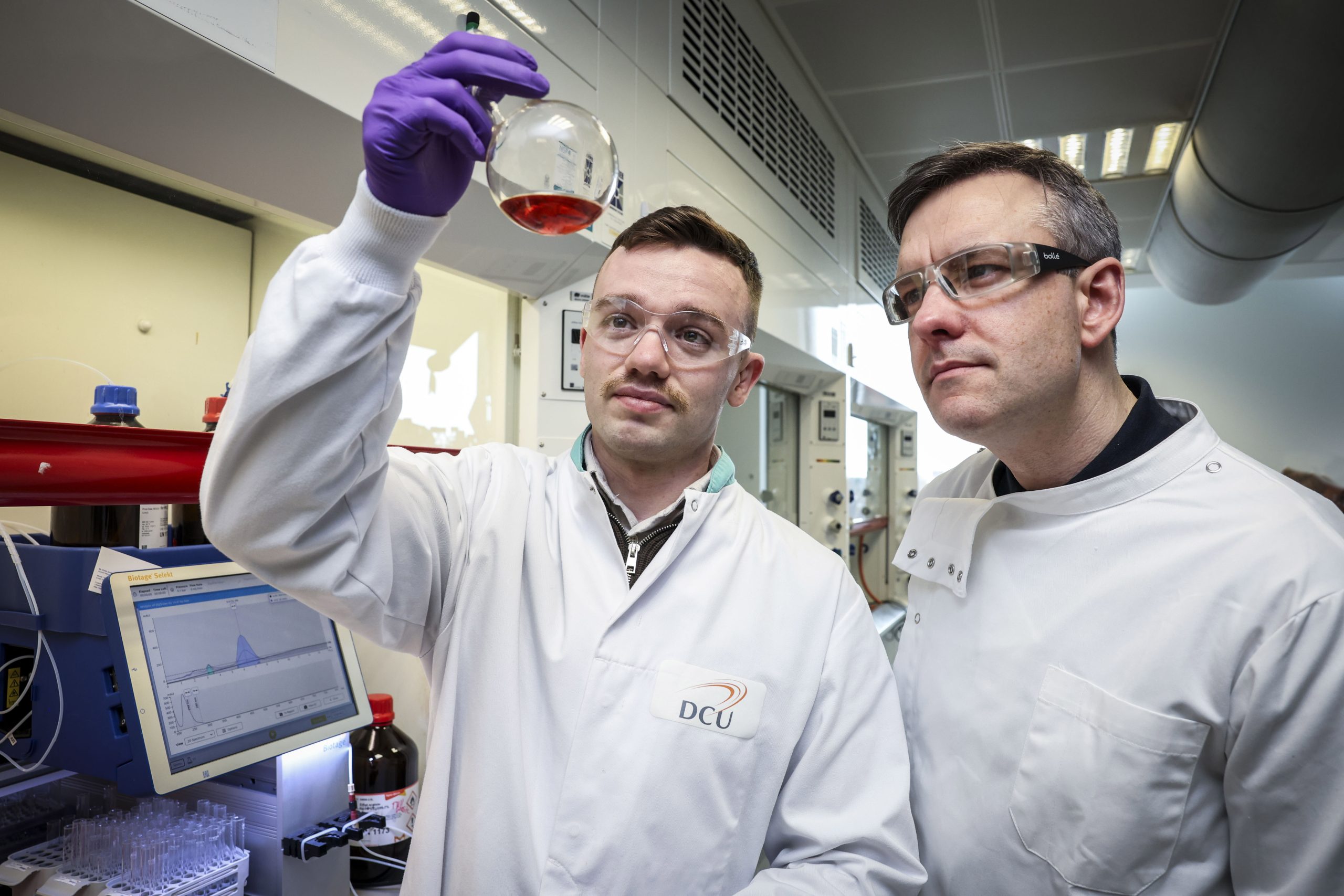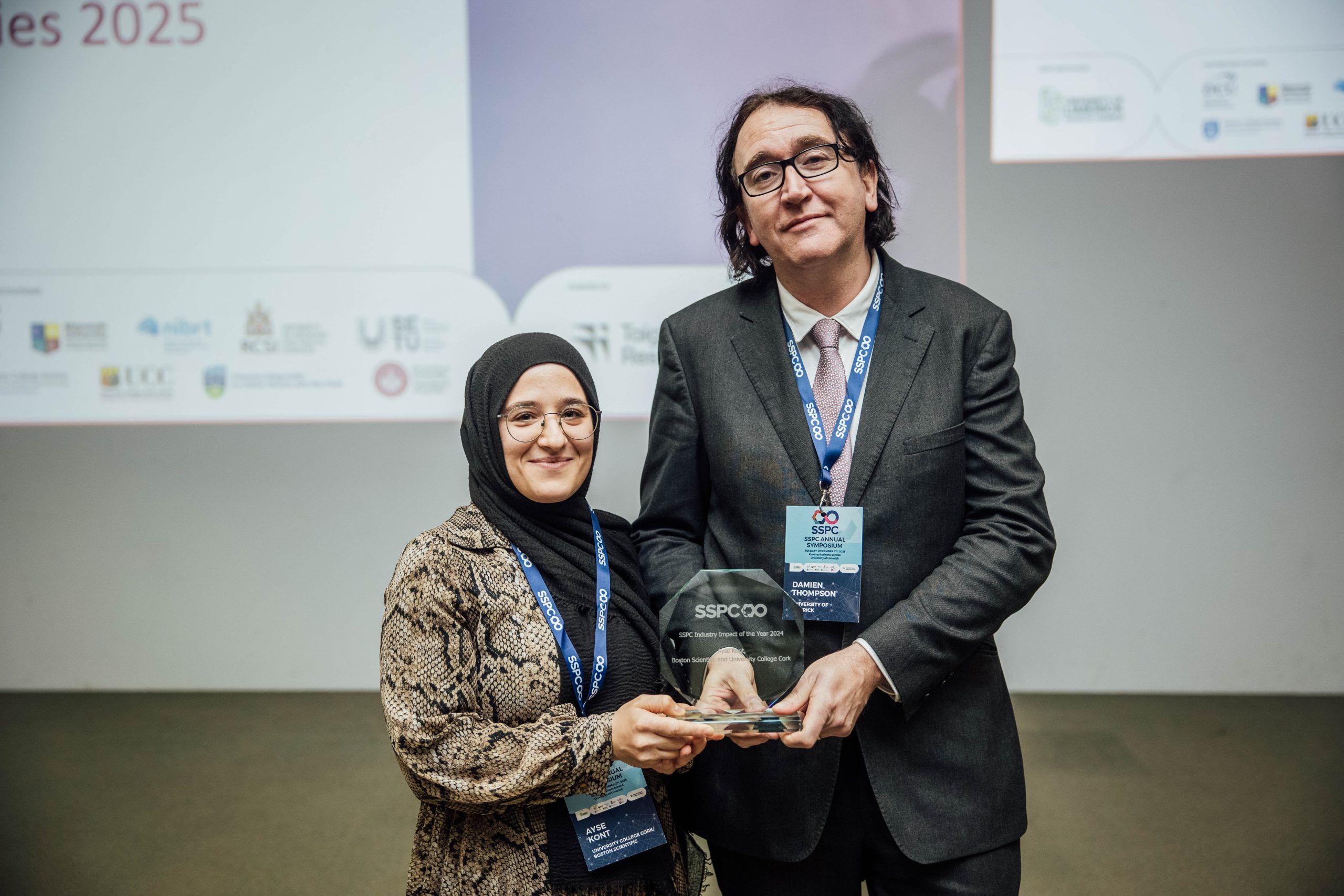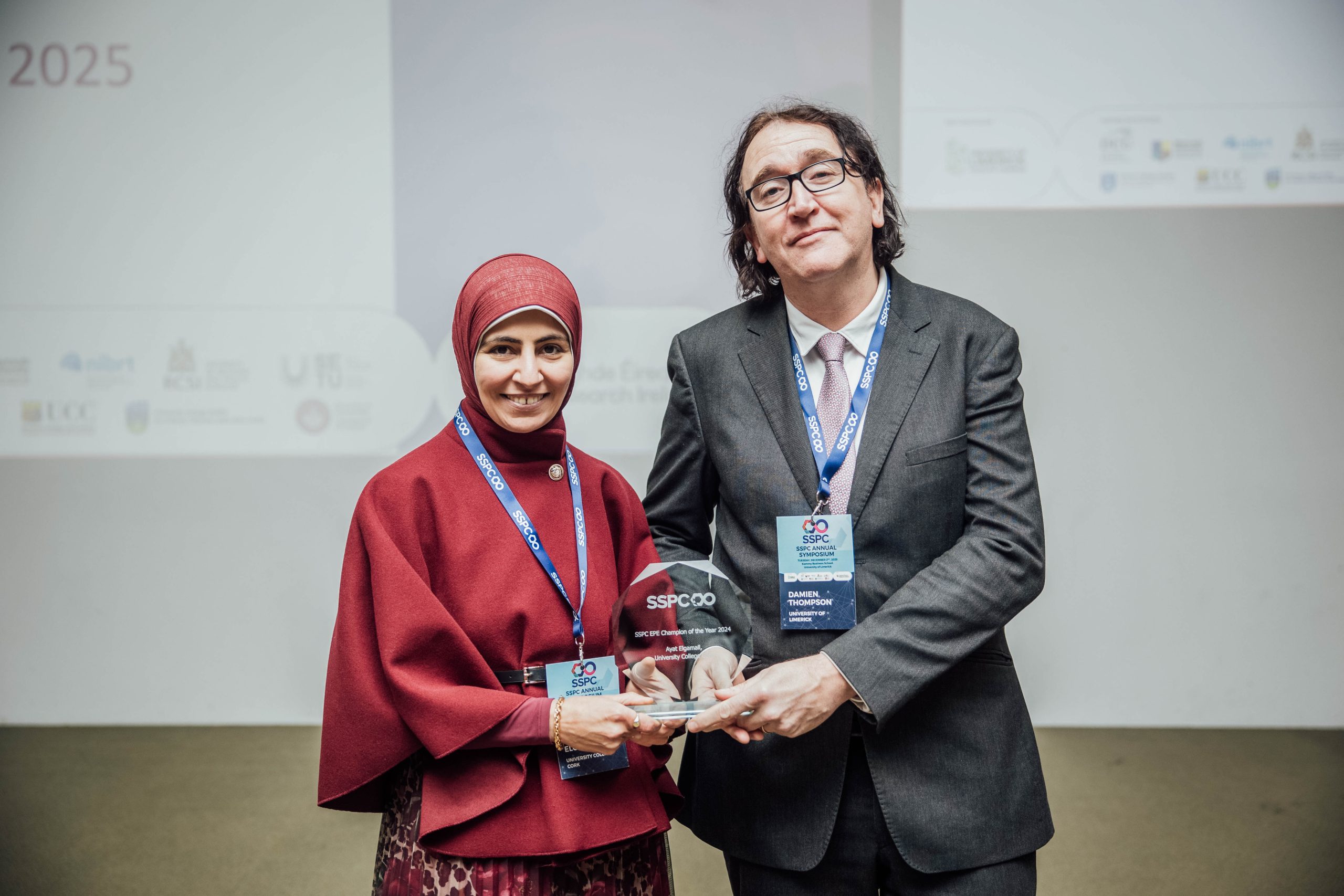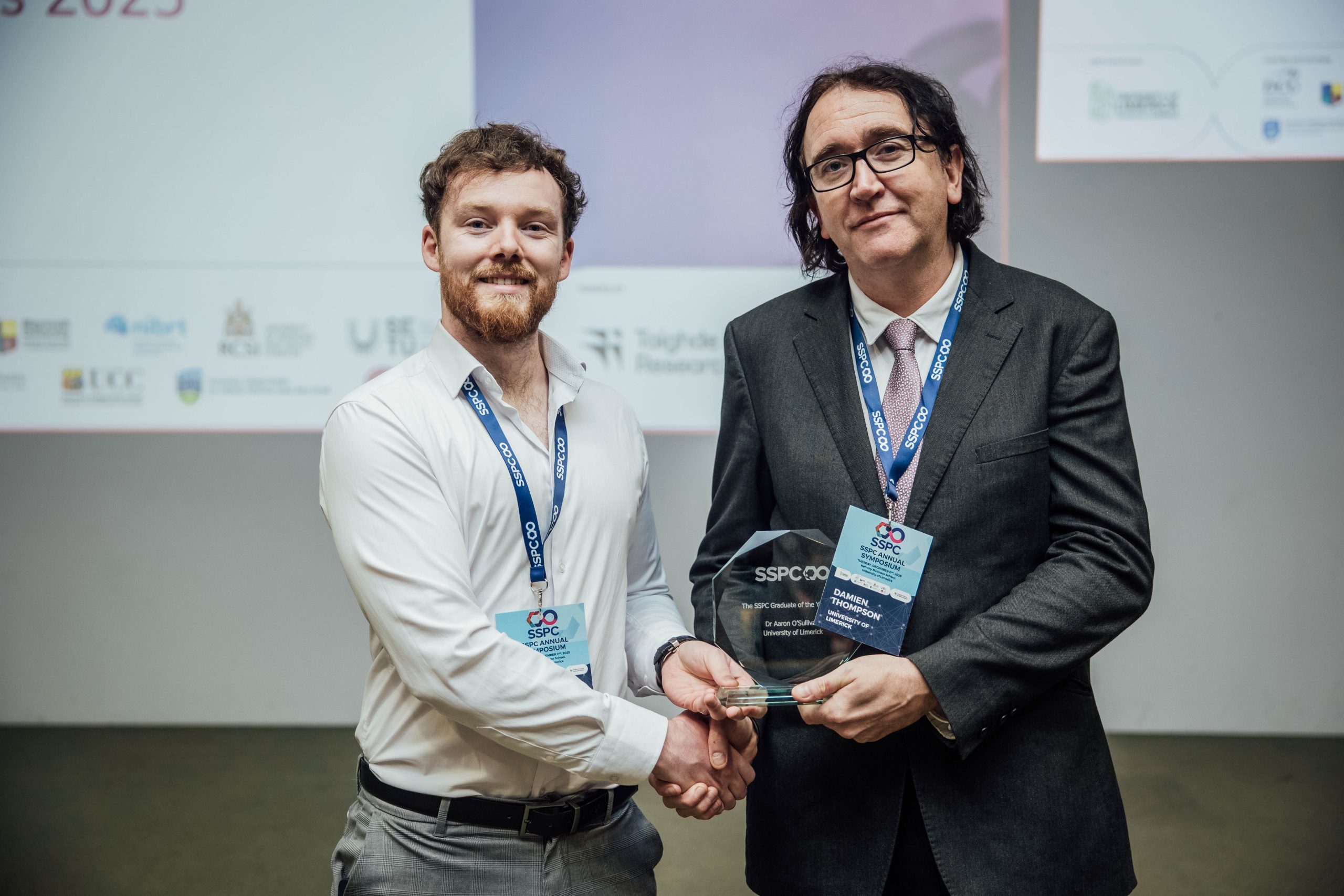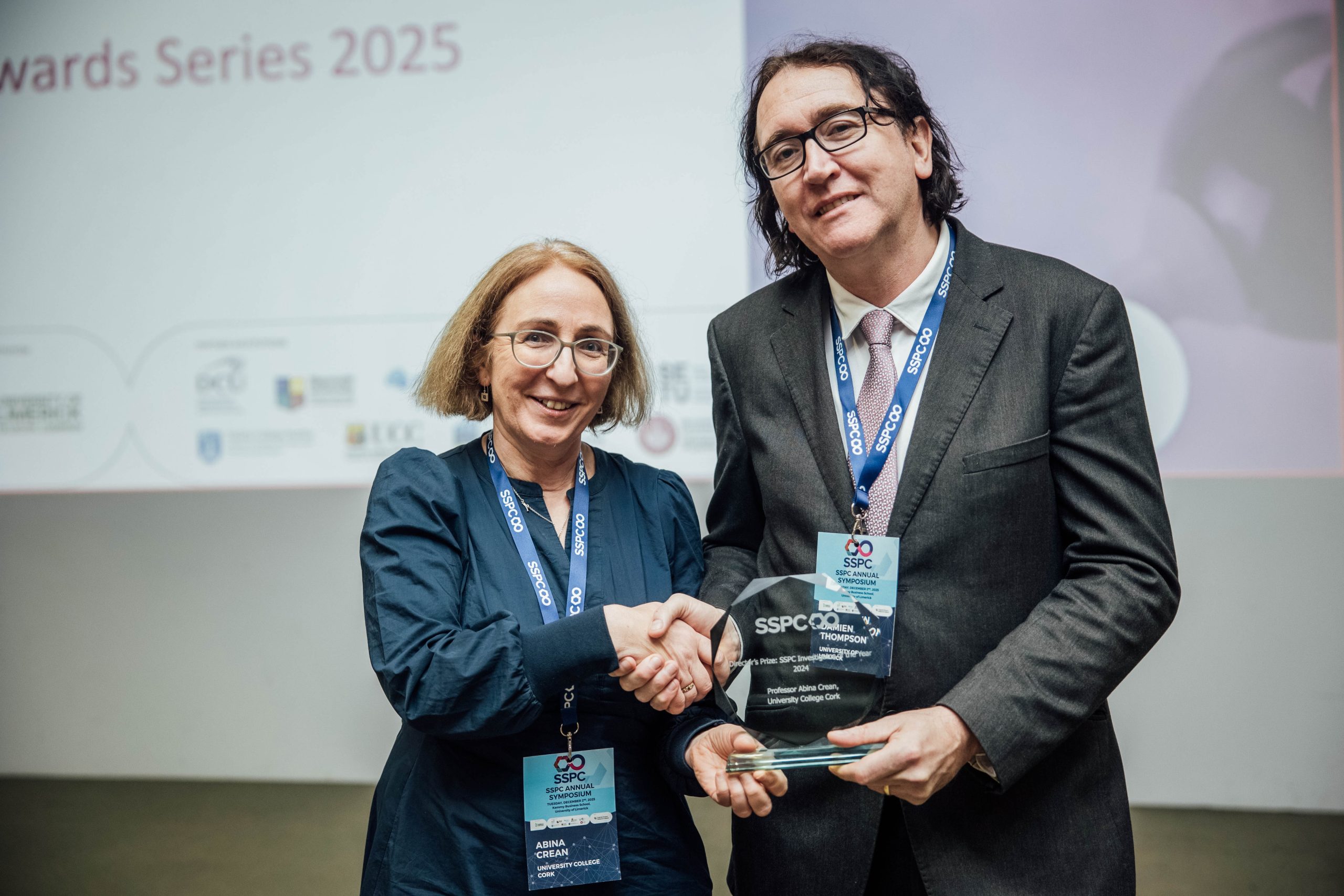Pictured: Dr Örn Almarsson (CEO & co-founder, Axelyf), Associate Professor Rob Elmes, Maynooth University and Jamie Guidera, Business Development, SSPC
SSPC, the SFI Research Centre for Pharmaceuticals and Maynooth University announce a research partnership with Icelandic biotechnology start-up, Axelyf. This collaboration aims to impact patients’ lives through the development of next-generation delivery technologies for emerging therapeutics, such as the mRNA class of compounds.
The project is being led by Associate Professor Rob Elmes of Maynooth University and championed by Dr Örn Almarsson (CEO & co-founder, Axelyf). The team aims to exploit the fundamental principles of supramolecular chemistry to develop a series of innovative technologies to enhance the current state-of-the-art and drive forward the field of bio-therapeutics.
Speaking about the project, Assoc. Prof. Rob Elmes, said:
“Our focus over the past number of years has been in gaining a fundamental understanding of how certain molecules interact with each other. This understanding is now providing unique opportunities across a broad range of applications in the health sciences, particularly in new drug development. With the unique insight provided by Axelyf, we see this new project as a key partnership, and I am optimistic that we can rapidly progress innovative technologies in biologic drug development in the next few years.”
The 21st century has witnessed the rapid emergence of biological therapeutics. These molecules present medicinal chemists with a new suite of compounds through which they can develop next-generation medicines.
Biologics can target unmet medical needs and ensure good health and wellbeing for all, a key issue identified by the UN within their Sustainable Development Goals. From small peptides to large RNAs, including mRNA, the potential impact of this therapeutic class in medicine appears limitless in terms of disease treatment. The project aims to meet a need for technologies capable of protecting and delivering these therapeutics into the body safely and efficiently.
For example, mRNA vaccines, now familiar to everyone due to the Covid-19 pandemic, take advantage of lipid nanoparticles (LNPs) to encapsulate and protect the mRNA molecules, facilitating their cellular uptake and expression. The unique properties of LNPs, such as their amphiphilic nature and ability to form layers, can stabilise and efficiently deliver RNA payloads. Additionally, LNPs present opportunities for targeted delivery, enhancing the therapeutic efficacy of vaccines and medicines. However, while innovation in the mRNA space has continued to advance, novel methods of biological drug delivery have been slower to emerge and are now urgently required to develop biotechnological solutions for vaccine development and precision medicine.
Dr Örn Almarsson, Axelyf, noted:
“There remains a need for potent yet safe and selective delivery of various biological cargos into cells in the body. In vivo delivery options that broaden targetable tissues with lipid nanoparticles are still lacking. We see a fantastic opportunity to work with the group of Assoc. Prof. Elmes, who has emerged as a leader in supramolecular design and synthesis in Ireland. Membership in SSPC, which Axelyf gained last year, has facilitated this collaboration, and we are enthusiastic to see it come to fruition for the advancement in biological therapeutic delivery”.
Prof. Damien Thompson, Director of the SSPC, added:
“I am delighted to see this partnership with biotech start-up Axelyf, which supports Ireland’s strong presence in advanced therapies and medicinal products, or Advanced therapy medicinal products (ATMPs). Using very clever, world-leading chemistry, the team will meet a significant need for technologies capable of protecting and delivering these therapeutics into the body safely and efficiently.”


